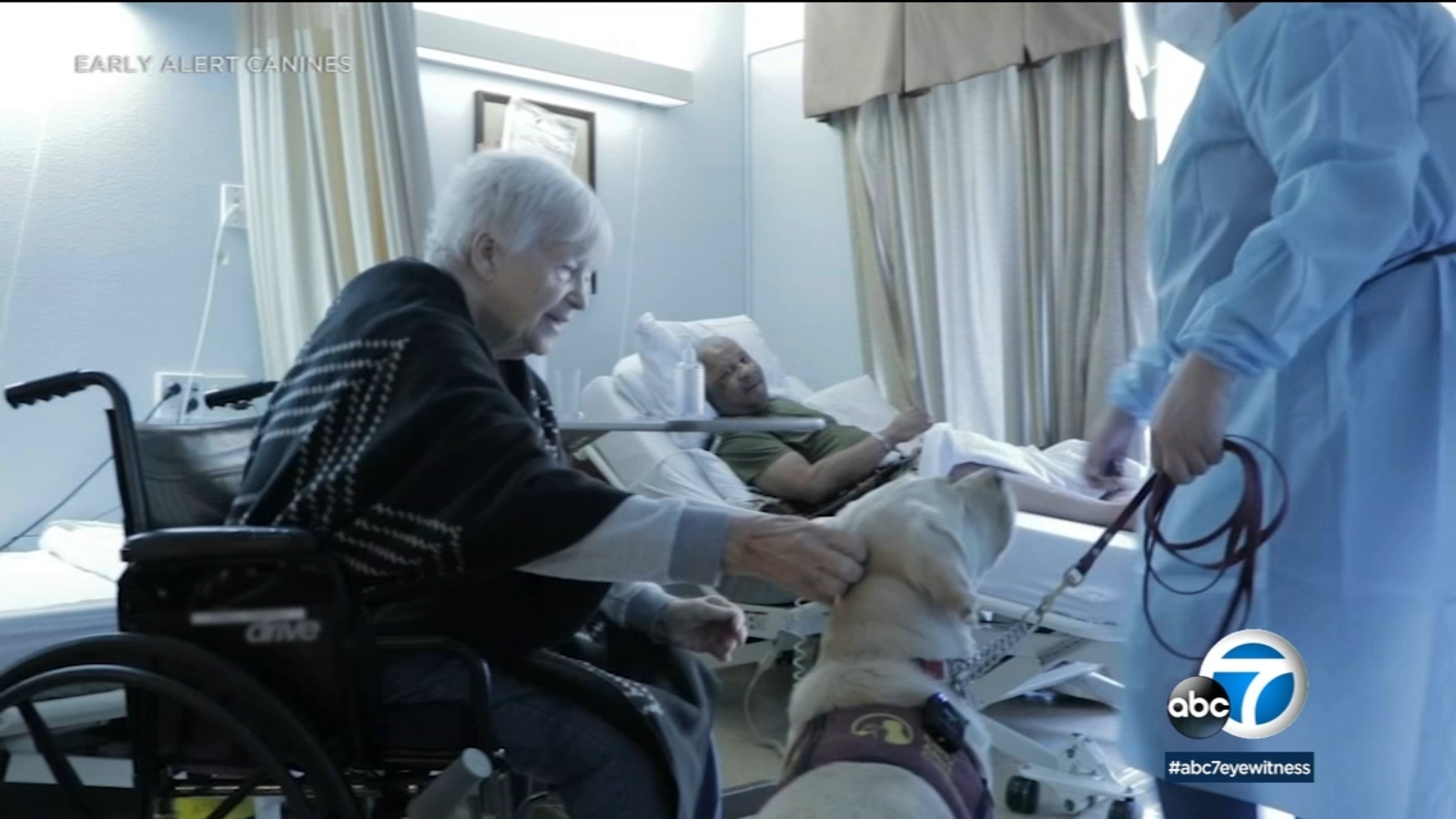Infection
Scent-trained dogs can help detect COVID-19 infections, trainers say
It took about a year for researchers to develop a reliable, at-home self-test for COVID-19 after the virus was identified. Heather Junqueira, the founder of BIO-K9, says a scent-trained dog can be learn to do the same in weeks.
“They pick up the changes very, very early. They’re highly sensitive,” she said.
Junqueira trains dogs to identify COVID and several other diseases, and co-authored a paper looking at peer-reviewed studies in 30 countries which found scent dogs are “as effective and often more effective” at detecting COVID than the antigen tests we keep at home.
“There’s a future for using the medical detection dogs, because the process can be duplicated,” she said.
Dogs trained by Early Alert Canines in northern California recently found three positive cases at a nursing home; people who were quickly quarantined and treated protecting the community from further spread.
“It’s something I’ve believed in for years,” said Carol Edwards, the executive director of Early Alert Canines.
Edwards used socks, worn by COVID-positive volunteers, in tin cans on a wheel to train her dogs — not to smell the virus, but a byproduct that human bodies create when a person has COVID. As part of a pilot program at 27 schools last year, Edwards’ dogs were 90% accurate, and in the lab the dogs had a 99% accuracy rate.
“That validation across the world where different people were able to do this, I think the scientific community sat up and took notice and went: Well, what else can we do? Which is something I’ve been waiting for, for a long time,” Edwards explained.
Scent dogs are actually nothing new. Early Alert Canines have trained dogs to detect changes in the blood sugar level of their owner even before a glucose sensor.
Monique La Bomme swears by her dog Jolo.
“If I’m going low and Jolo has already alerted, by the time my sensor’s going off, nine times out of 10, I’m already drinking juice or eating a piece of candy,” she said.
La Bomme’s Jolo was trained by Early Alert Canines. She still wears a glucose sensor, but Jolo gives her a head-start on life-threatening blood sugar swings due to her insulin-dependent diabetes. He smells the change and won’t relax until it stabilizes.
“The security of feeling like you can be yourself and have more independence while also dealing with whatever illness or disability you have is … it’s … there’s no words for it, it’s just amazing,” La Bomme said.
If dogs can be trained to monitor blood sugar and have shown incredible success at detecting COVID, we shouldn’t be surprised at what they might sniff out next.
With great confidence, Junqueira feels current training has only scratched the surface.
“The dogs have the capability of screening massive numbers of people very quickly, and there’s nothing else that exists that can do that,” she said.

